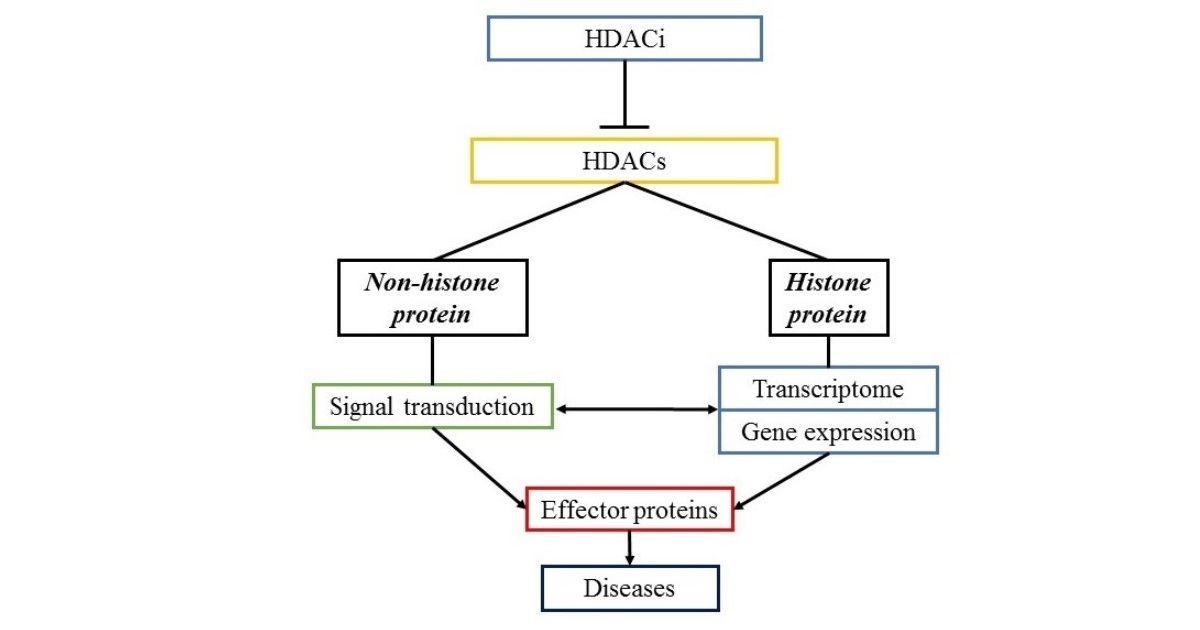- 5.2Impact Factor
- 10.5CiteScore
- 16 daysTime to First Decision
Histone Deacetylase Inhibitors in Disease
This special issue belongs to the section “Cell Nuclei: Function, Transport and Receptors“.
Special Issue Information
Dear Colleagues,
We are pleased to invite you to submit original articles to a Special Issue entitled Histone Deacetylase Inhibitors in Disease. Histone deacetylases (HDACs) are the crucial enzymes that catalyze the deacetylation of the lysine residues of histone and non-histone proteins and execute epigenetic genome expression and post-translational modification of transcription factors for regulating fundamental cellular processes. In particular, the histone acetylation homeostasis is dysregulated and impaired in the development of cancers and neurodegenerative and inflammatory diseases. HDAC inhibitors (HDACi), with their actions of hyperacetylation, have shown potential for the treatment of diverse diseases. Due to the important role of HDACs in different biological processes, their dysregulation or malfunction may cause several pathological conditions and diseases.
The goal of this Special Issue is to collect original research papers that explore the role of HDACs in human diseases and highlight the therapeutic uses of these novel HDACi.
Prof. Dr. George Hsiao
Guest Editor
Manuscript Submission Information
Manuscripts should be submitted online at www.mdpi.com by registering and logging in to this website. Once you are registered, click here to go to the submission form. Manuscripts can be submitted until the deadline. All submissions that pass pre-check are peer-reviewed. Accepted papers will be published continuously in the journal (as soon as accepted) and will be listed together on the special issue website. Research articles, review articles as well as short communications are invited. For planned papers, a title and short abstract (about 250 words) can be sent to the Editorial Office for assessment.
Submitted manuscripts should not have been published previously, nor be under consideration for publication elsewhere (except conference proceedings papers). All manuscripts are thoroughly refereed through a single-blind peer-review process. A guide for authors and other relevant information for submission of manuscripts is available on the Instructions for Authors page. Cells is an international peer-reviewed open access semimonthly journal published by MDPI.
Please visit the Instructions for Authors page before submitting a manuscript. The Article Processing Charge (APC) for publication in this open access journal is 2700 CHF (Swiss Francs). Submitted papers should be well formatted and use good English. Authors may use MDPI's English editing service prior to publication or during author revisions.
Keywords
- epigenetic regulation
- histone deacetylases
- histone deacetylase inhibitors
- cell signaling
- disease therapeutics

Benefits of Publishing in a Special Issue
- Ease of navigation: Grouping papers by topic helps scholars navigate broad scope journals more efficiently.
- Greater discoverability: Special Issues support the reach and impact of scientific research. Articles in Special Issues are more discoverable and cited more frequently.
- Expansion of research network: Special Issues facilitate connections among authors, fostering scientific collaborations.
- External promotion: Articles in Special Issues are often promoted through the journal's social media, increasing their visibility.
- e-Book format: Special Issues with more than 10 articles can be published as dedicated e-books, ensuring wide and rapid dissemination.

